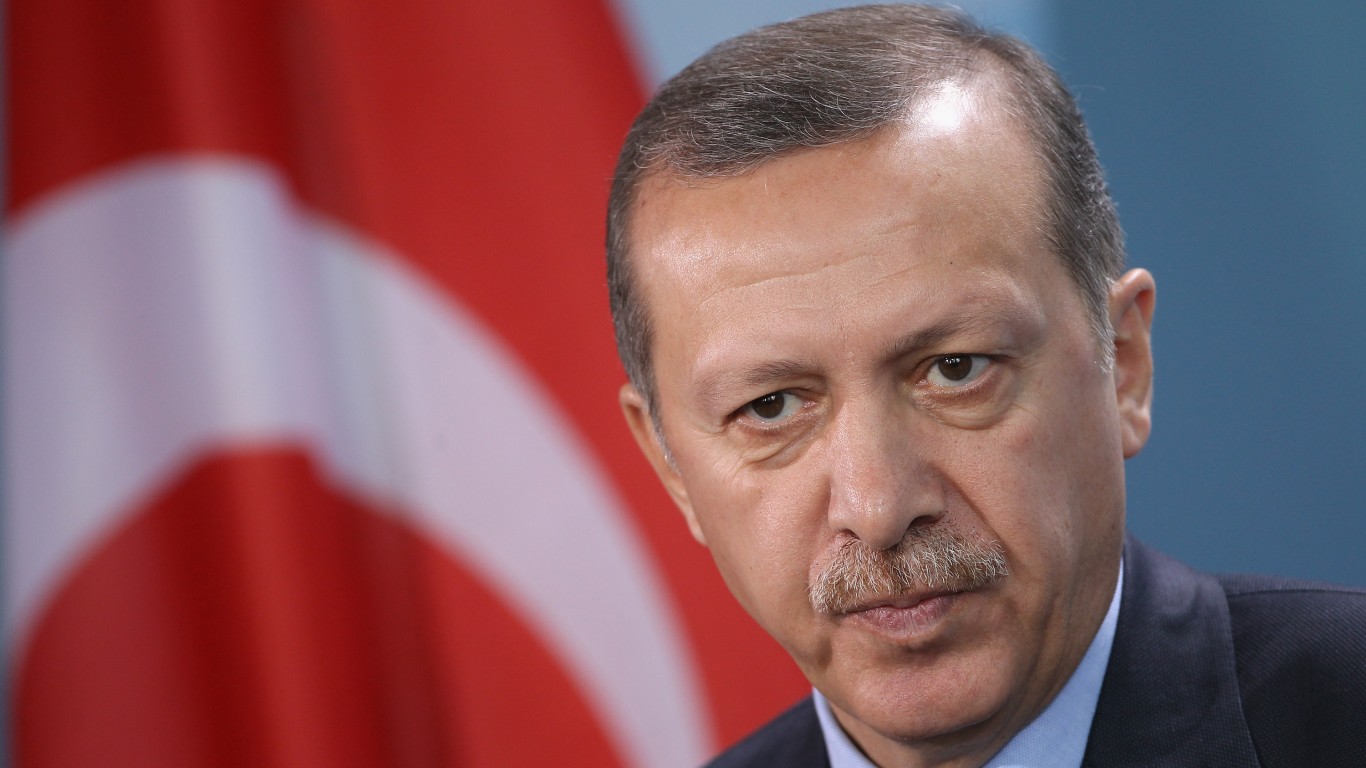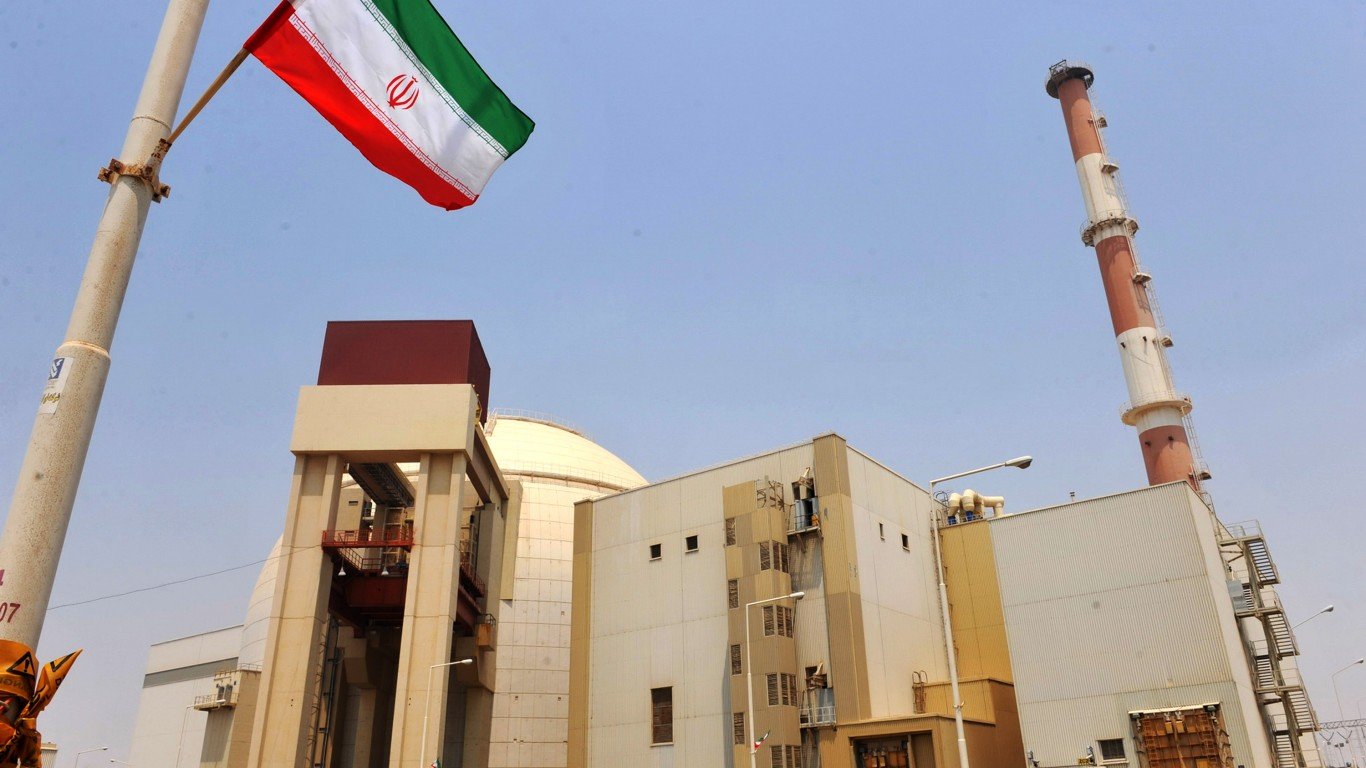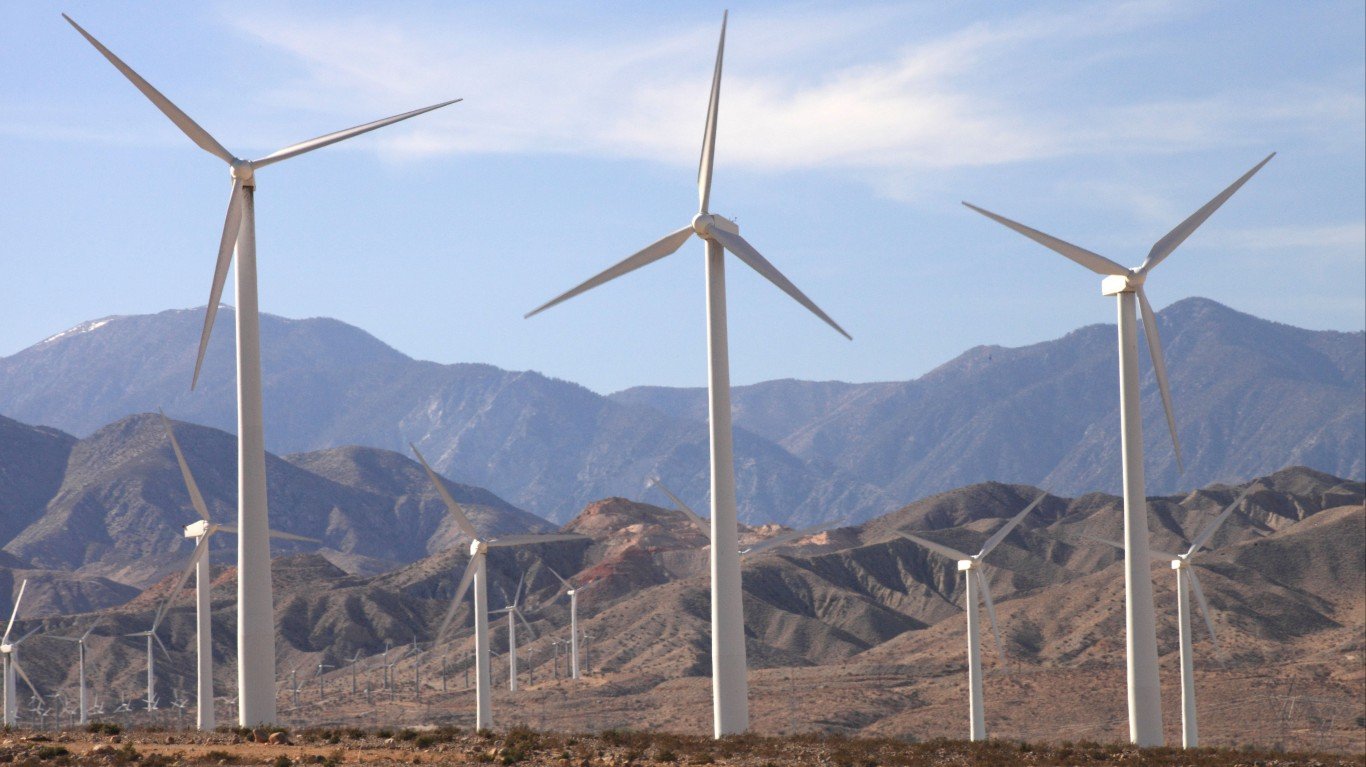
10. Turkey
Turkey, an ostensible U.S. ally home to over 84 million people over parts of eastern Europe and western Asia, is in the midst of an economic crisis. Inflation has surged by over 20% in recent months, and flaunting conventional economic wisdom, President Recep Erdogan has eased monetary policy, making matters considerably worse.
Erdogan is posturing aggressively internationally to distract his constituency from the weakening Turkish lira and rising unemployment. Experts are concerned that U.S. sanctions over the country’s dealings with Iran could push Turkey, a NATO ally, towards Russia for future arms deals and lead to the country’s taking increasingly erratic and belligerent geopolitical moves

9. Corporations balancing business with cultural demands
Multinational corporations will likely face a growing set of political and cultural challenges in the coming year. Through social media, organized walkouts, and other means, consumers and employees alike are demanding corporations take a stand on certain issues, such as workplace diversity, voting rights, free speech, and human rights – and meeting such demands can prove a charged and an expensive endeavor.
For example, recent polls have shown that 65% of millennials say they have boycotted brands with positions on social issues that differ from their own, and 75% of millennial workers expect their employer to take a stand on important issues that affect the country. This puts companies in the difficult position of appeasing one group, potentially at the expense of angering another. Multinationals operating in China have the added challenge of doing business in the world’s most populous country while grappling with that country’s human rights abuses.

8. Global power vacuum
Major powers, most notably the United States, are less willing than in past years to intervene in global affairs. The most recent and glaring example of this was the messy withdrawal of the American military from Afghanistan. Places like Afghanistan, as well as Burkina Faso, Chad, Mali, and Niger – where France and the U.S. have scaled back their presense in recent years – will likely become breeding grounds for terrorism, according to the Eurasia Group.
In other parts of the world that struggle with ongoing economic and political crises, such as Venezuela and Haiti, refugees are fleeing by the millions creating new problems along international borders.
7. Faltering transition to clean energy
The transition to clean energy is necessary to avert the worst possible global warming outcomes, but that transition appears as though it will be a long and painful one. Supply chain disruptions and demand fluctuations attributable to the COVID-19 pandemic are contributing to spikes in energy prices and putting governments in the position of choosing between meeting green energy targets and delaying climate goals in an attempt to keep costs lower and appeasing their constituents in the short term.
Balancing a green transition while keeping energy prices low in the face of historically high inflation will likely be a challenge for governments this year, particularly in the United States, where it could lead to increased instability.

6. Iranian nuclear ambitions
Since President Donald Trump withdrew from the Iran nuclear deal negotiated during the Obama Administration, Iran continued unchecked in its pursuit of developing nuclear weapons. Talks between Washington and Tehran have faltered during the Biden Administration, leaving the U.S. with limited options going into 2022.
Iran is now in a position to produce enough enriched uranium to develop a nuclear bomb in as little as one month, leaving some experts to suspect a looming unilateral Israeli strike on Iran’s nuclear facilities. Such an outcome could foreseeably lead to an Iranian response that may target U.S. interests, push oil prices higher, and destabilize commerce across the Middle East.







